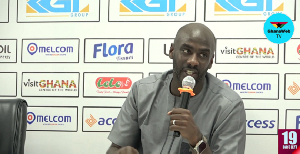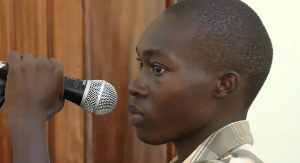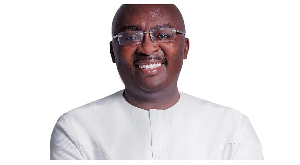A human rights advocate, Mr Jeggan Grey-Johnson, has appealed to African Justice officials and political activists to hasten efforts towards the prosecution of those responsible for the murder of the 44 plus Ghanaians in The Gambia in 2005.
Their action, he said, should demonstrate to citizens that the continent had a firm belief in the rule of law and respect for human rights.
Mr Grey-Johnson, who is the Advocacy and Communications Coordinator for Africa Regions Office of Open Society Foundations, made the appeal, on Thursday, at the Premiere of the “J2J Ghana Coalition Documentary Film” in Accra.
The event, organised by the Centre for Democratic Development (CDD), Ghana and partners, was under theme: “The Massacre of Ghanaians in The Gambia: Justice in Limbo?”.
On July 23, 2005, news broke about the unlawful killings of over 44 Ghanaians in the Gambia by the “Junglers”, a notorious paramilitary unit, on the orders of Yahya Jammeh, the then President of the country.
The Advocacy Coordinator said they would continue to amplify their voices in their quest for justice and would not relent until a closure was brought to the case.
“These were vulnerable young people- and the people who killed them thought that because they were migrants, that nobody knew, no one would notice, because no one would miss them,” he said.
“The lives of your colleagues matter. So their deaths must matter also. They were someone’s sons, daughters, uncles, fathers, mothers-to be, cousins, nephews, nieces and friends.
“These were young African men and women, with a whole future ahead of them. They were our future-our people- our youth. They deserve closure. Not political and diplomatic posturing”.
Dr Kojo Asante, Director of Advocacy and Policy Engagement, CDD-Ghana said when news of the massacre broke, an advocacy sprung up, led by Mr Akoto Ampaw, Professor Kwame Karikari and Ms Nana Oye Lithur, who were all founding patrons.
He said the advocacy was also channelled through Civil Society Organisations, led by the Commonwealth Human Rights Initiative, Media Foundation for West Africa and Africa Legal Aid.
Dr Asante said it was through such relentless efforts that eventually brought the illegal operation into the limelight for national discussion and urged the state to initiate legal steps to undertake investigations and secure justice for the victims and their family members.
Unfortunately, he said not much was achieved because Yahya Jammeh did not cooperate with the High-Powered Delegation sent by Ghana to the Gambia.
“In fact, when a United Nations/ ECOWAS team was tasked to conduct investigations into the murder in 2009, they concluded that the Gambian Government was not “directly or indirectly complicit” in the deaths and disappearances of the West Africans; but rather, ‘rogue elements’ in the Gambia’s security services were responsible”.
However, he said, new evidence put together by Human Rights Watch and TRIAL International through interviews with more than two dozen former officials of the Gambian security forces, including officers directly involved in the incident, had revealed that the “junglers” under Yahya Jammeh’s orders summarily executed the migrants over several days in various locations in the Gambia and neighbouring Senegal.
Meanwhile, addressing the “Meet-the-Press” session last year, Madam Shirley Ayorkor Botchwey, Minister of Foreign Affairs and Regional Integration said President Akufo-Addo was ‘one hundred per cent’ committed to ensuring justice for the victims.
She said Madam Gloria Akuffo, the Minister of Justice and Attorney General, was working on the case.
“The matter is with the Attorney-General of Ghana and she’s looking at it and she has had a meeting with her counterpart in the Gambia so it is not a closed case matter at all,” Madam Ayorkor-Botchwey said.
“But I can tell you that we are taking the matter very seriously because one murder of a Ghanaian is one too many.”
General News of Saturday, 29 February 2020
Source: GNA

















